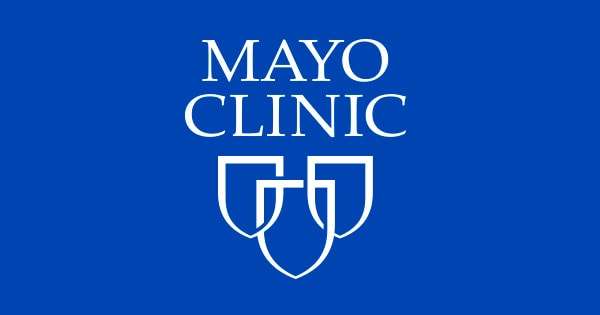/https://tf-cmsv2-smithsonianmag-media.s3.amazonaws.com/filer/e1/31/e131357d-d165-46c0-a820-939919382d38/istock_000041537392_large.jpeg)
Psychological counseling is one of the main approaches to treating social anxiety disorder, a debilitating fear of daily human interactions. But, people with the mental illness are not only crippled by conversations with friends and family, and presentations at work, but also by the idea of speaking to a specialist about it. This barrier along with others often prevents individuals from making an appointment with a therapist. In fact, 36 percent of those suffering from symptoms say they have waited ten or more years before doing so.
“Millions of people want help but don’t seek it out because of skepticism, cost, inconvenience and other reasons,” says Steve Marks, one of the cofounders of Joyable, a startup that’s built a 12-week online program to help individuals tackle social anxiety. “We believe the key to reaching people who aren’t getting help is to meet them where they are.” Marks and his cofounder Pete Shalek aim to connect the many individuals who haven’t found treatment with the tools they need.
Marks and Shalek met at Stanford University, while they were completing masters degrees in business administration. Both had previous experience in the healthcare industry, from working in residential treatment facilities to advising health tech companies. After witnessing firsthand the detrimental effect that social anxiety had on close friends and family, they researched accessible treatment options and ultimately built Joyable together. Marks shares their story with Smithsonian.com.

Let’s start with the problem. What problem are you trying to fix?
Anxiety and depression are the biggest causes of disability in the developed world. One in five Americans suffers from anxiety and depression, and 85 percent don’t get help. We’ve seen this firsthand with people we love and care about, and we wanted to make a difference. We’re starting with social anxiety, which affects 15 million Americans each year, because social anxiety is a barrier to seeing a therapist in person.
Despite the fact that 85 percent of Americans with social anxiety don’t receive help, treating social anxiety is a solved problem. Cognitive Behavioral Therapy (CBT) is extremely effective. We founded Joyable to give everyone access to evidence-based help like CBT.

So, what exactly is Joyable? Could you give me your elevator pitch?
Joyable is the most effective and affordable online solution for social anxiety. The program is based on Cognitive Behavioral Therapy (CBT), the leading treatment for social anxiety, which is recommended by authorities like the National Institute of Mental Health. The biggest challenges in overcoming social anxiety are starting and completing CBT. Joyable’s technology makes it easy to start CBT, and each Joyable client has a personal coach who helps ensure they stick with the program. We’re helping people overcome social anxiety in a convenient and private way.
There are six stages to the Joyable CBT program. The exact speed at which clients progress through these stages varies, and the specifics are tailored to each client’s goals. Clients start the program with an optional 30-minute kick-off call with their coach, or they can just interact with their coach by text and email. They talk to their coach about how social anxiety affects them and what they want to get out of the program. Clients identify specific social situations that make them anxious and learn how CBT can help reduce that anxiety. They understand what triggers their anxiety and how to control those triggers. Clients learn to identify and challenge the thoughts that make them anxious so they feel less overwhelming. They learn techniques to reduce their anxiety in any situation so they can lead the life they want. Participants practice the key skills they’ve learned, such as identifying thinking errors and challenging anxious thoughts, and use these techniques in a variety of social settings. They work toward their goals, starting with situations that are a little anxious and moving on to more difficult situations as they become more comfortable and confident. Clients learn how to maintain the gains they have achieved and how to incorporate CBT into their daily life. They lock in the benefits, which can last for over 10 years.
How did you come up with this concept?
In 2013, Pete was shadowing doctors in the Stanford hospitals and saw an enormous number of people with anxiety coming to the Emergency Room for relief. He spoke to 200 people with social anxiety, who told him it was paralyzing and that they struggled to get help. They told him that they didn’t know what worked and weren’t sure they could afford help.
At the same time, he spoke to 50 psychology experts at Stanford, who told him that addressing anxiety is a solved problem: CBT’s effectiveness has been proven by hundreds of studies. CBT is not that complicated. And it doesn’t have to be that expensive.
He thought: what if you could bridge the gap between the millions of people who suffer social anxiety without getting help and the clinicians who know exactly what to do? That’s how the idea for Joyable was born.
What evidence suggests that the app can effectively address social anxiety?
CBT is the leading treatment for social anxiety, recommended by major authorities like the National Institute of Mental Health, the Anxiety and Depression Association of America and the National Health Service in the UK. It has been the subject of many, many peer-reviewed clinical studies over decades. (This meta-analysis from The Lancet in September 2014 reviewed 101 clinical trials and concluded that CBT “should be regarded as the best intervention for the initial treatment of social anxiety disorder.”) Studies have also shown that online CBT is just as effective as in-person therapy.
Our own outcomes now reinforce that message. Joyable measures the social anxiety of our clients using a clinically validated scale (the Social Phobia Inventory, or SPIN). We ask clients to complete the SPIN when they begin Joyable and periodically during the program so they can track their progress. Ninety percent of Joyable’s clients see their anxiety decline. On average, Joyable clients see their anxiety decline by 30 percent. Clients tell us that a 30 percent decline is life-changing. It empowers them to do the things that they care about most—things that were hard for them before Joyable, such as interviewing for jobs, going on dates, attending social events or interacting successfully with their families.
Do you think it is ironic to take humans out of the process of addressing social anxiety?
The fact that Joyable offers human interaction primarily via text, email and optionally phone is one of our clients’ favorite parts of Joyable. People with social anxiety often tell us that they don’t visit a therapist precisely because their social anxiety prevents them from wanting to see someone in person.
Having said that, a core part of Joyable comes via offline, in-person interactions called “exposures.” Exposures are moderately anxious situations that clients carefully plan for. Examples include getting coffee with a friend, asking a question in class or speaking up during a meeting. By putting themselves in these situations, clients learn that the things they worry about are less likely to happen than they expect, and that they can cope if those things do happen. Research shows that doing well-planned exposures is the single best way to overcome social anxiety. Joyable teaches you how to do exposures well and helps you plan them, but it’s the action of doing the in-person activity that really drives the benefit.
How will an app fill the traditional role of a specialist?
We recruited leading clinical experts in social anxiety and CBT to help us build Joyable. They designed Joyable based on the research that online CBT works equally well as in-person CBT, as long as clients complete the program.
One of our experts, Rick Heimberg, is one of the world’s leaders in treating social anxiety. He literally wrote the book on it. Heimberg’s support is an incredible vote of confidence in Joyable.
Do you find people sticking with the app, if much of that dedication depends on self-motivation?
We’ve seen terrific engagement, and our coaches are the key. Coaches act as an accountability partner to our clients, helping clients stick with the program and do the things that will help them overcome their social anxiety.

How would you describe your success to date?
We’re helping people overcome social anxiety—allowing them to do the things that are important in their lives that they couldn’t do before, like interviewing for jobs, going on dates, attending social events or interacting successfully with their families. Our clients tell us Joyable changes their lives, and our data supports that. This is the most important way that we measure success. As more and more clients graduate Joyable, we hope to increase awareness about social anxiety and reduce the stigma associated with it.
We’re also growing like crazy, allowing us to reach and help many more people. We’ve doubled our number of users every month since our launch to users in March 2015. And we’re just getting started. Fifteen million Americans have social anxiety, and many millions more suffer from it globally.
Could you provide an example of someone who has used the app to help overcome social anxiety?
One of Joyable’s clients is a writing tutor named Emma. She’s 29 years old. Emma started using Joyable because she felt isolated and depressed, and in her words “wasn’t living my best life.” She had tried visiting a therapist but struggled to fit it into her schedule and to get her insurance to pay for it. Emma also worried she didn’t have the emotional energy to build a client/patient relationship with a therapist. With Joyable, she was able to make changes in her life—from answering phone calls to standing up for her needs in social situations—that have boosted her confidence. She changed careers, stood up for herself in her workplace and moved across the country.
How do you plan to scale your company? What’s next?
Our clients are constantly asking us about additional Joyable products. They are particularly interested in products to maintain their new anxiety-management skills—this is analogous to “booster” sessions with a therapist—and products to improve their social skills. Those are priorities on our product roadmap.
We aspire to cure the world’s anxiety and depression. That means we’ll eventually expand to depression and generalized anxiety, and we’ll also go global. Today, we are focused domestically.




